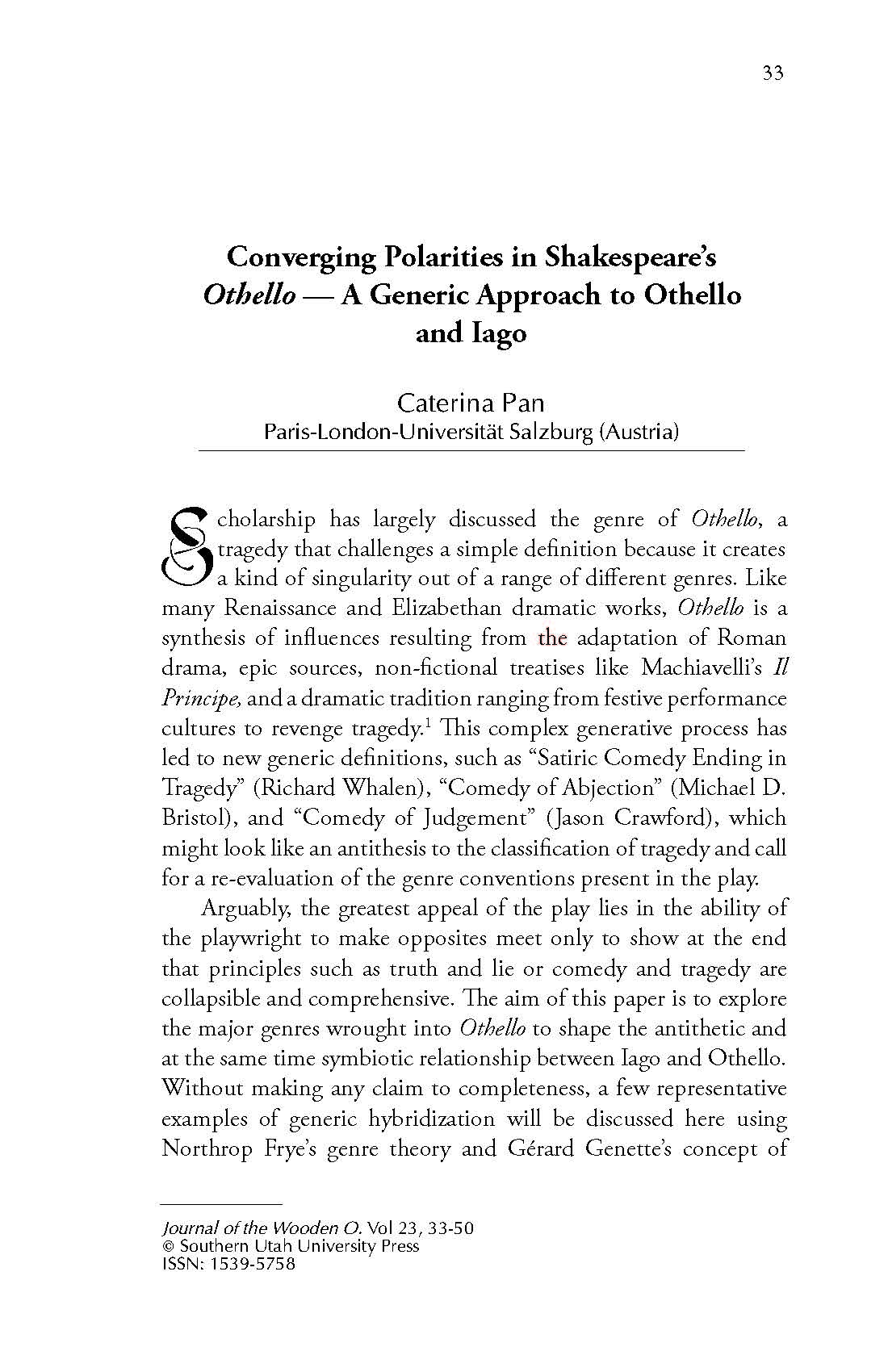Converging Polarities in Shakespeare's Othello A Generic Approach to Othello and Iago
Main Article Content
Abstract
Scholarship has largely discussed the genre of Othello, a tragedy that challenges a simple definition because it creates a kind of singularity out of a range of different genres. Like many Renaissance and Elizabethan dramatic works, Othello is a synthesis of influences resulting from the adaptation of Roman drama, epic sources, non-fictional treatises like Machiavelli’s Il Principe, and a dramatic tradition ranging from festive performance cultures to revenge tragedy.1 This complex generative process has led to new generic definitions, such as “Satiric Comedy Ending in Tragedy” (Richard Whalen), “Comedy of Abjection” (Michael D. Bristol), and “Comedy of Judgement” (Jason Crawford), which might look like an antithesis to the classification of tragedy and call for a re-evaluation of the genre conventions present in the play.
